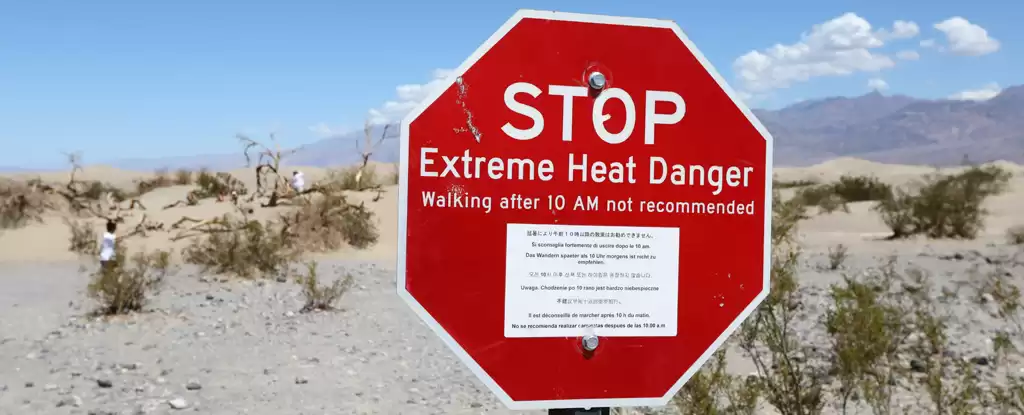Potential Record-Breaking Temperatures Could Be Measured in Death Valley
Intense heat waves worsen climate change, droughts, and wildfires worldwide.
Intense and unrelenting heat waves have become the new norm, exacerbating climate change and intensifying droughts and wildfires. The month of June broke records as the hottest month ever recorded, but July is expected to be even worse. In fact, the beginning of July marked the hottest week on record for the Earth, according to early data from the World Meteorological Organization.
The impact of these scorching temperatures is widespread, with excessive heat warnings and advisories now covering over 100 million people in the United States alone, as reported by the National Weather Service. However, the West is experiencing particularly punishing conditions. California's Death Valley, known for its infamously dry climate, is poised to break the record for the highest temperature ever recorded this weekend. The US National Weather Service has even described the heat as "sweltering and dangerous."
In response, the organization has urged citizens to take precautions and "practice heat safety." This includes staying hydrated and avoiding strenuous outdoor activities. The summer temperatures in Death Valley often exceed 120 degrees Fahrenheit (49 degrees Celsius), as confirmed by the National Parks Service. The valley's unique geography, with surrounding mountains trapping hot air in its long and narrow basin, contributes to these extreme temperatures.
In fact, this weekend could see temperatures surpassing 130 degrees Fahrenheit, which would set a new record for the hottest temperature ever reliably measured on Earth, according to the Scientific American. The impact of such extreme heat is already being felt in Phoenix, Arizona, where people have suffered second-degree burns from red-hot sidewalks. The city has endured temperatures above 110 degrees Fahrenheit for two consecutive weeks.
These heatwaves are not limited to the United States. Europe, the Middle East, and southeastern Turkey are also experiencing scorching temperatures, while Morocco has issued an extreme heat alert for certain areas of the country. The effects of climate change are evident worldwide, as humans have released significant amounts of carbon dioxide and methane into the atmosphere, altering the Earth's climate and contributing to more frequent and prolonged extreme weather events.
The consequences of these extreme weather events are far-reaching. In Uruguay, consecutive years of drought and above-average temperatures have nearly depleted the country's only freshwater reservoir. As a result, over half of the population lacks access to safe tap water, as reported by the Guardian. Northern Argentina and southern Patagonia are also grappling with climate stresses, while Iraq is experiencing water shortages that are impacting agriculture and food production.
Petteri Taalas, the secretary-general of the World Meteorological Organization, emphasizes the urgent need to reduce greenhouse gas emissions in light of these extreme weather events. He highlights the significant impact they have on human health, ecosystems, economies, agriculture, energy, and water supplies. The increasing frequency of these extreme events underscores the pressing need for immediate and substantial action to combat climate change.











Comments on Potential Record-Breaking Temperatures Could Be Measured in Death Valley